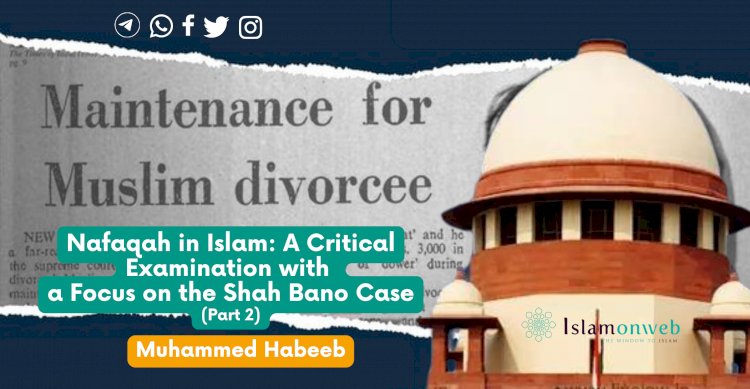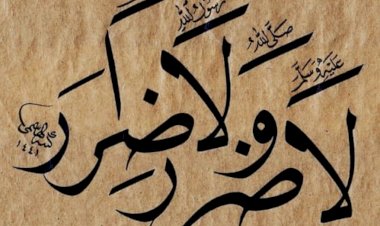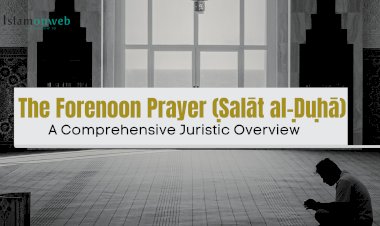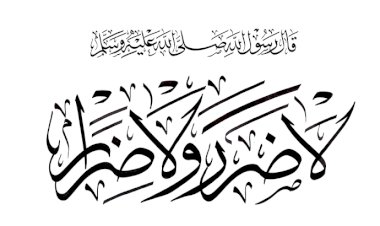Nafaqah in Islam: A Critical Examination with a Focus on the Shah Bano Case
Criticism on Nafaqah
The concept of nafaqah, which is about financial support in Islam, has faced criticism over the years. Some people are concerned about how it's used and enforced. They think that it can be unfair and lead to disagreements because there are no clear rules for how much should be given. Another criticism is that it might make gender inequalities worse. This is because it usually makes the husband responsible for providing financially, even when both partners work. Some people say that nafaqah should be adapted to modern families, where both partners might share the financial responsibility. Some Islamic countries are trying to change the laws about nafaqah to make them more fair and equal. But these criticisms show that there's an ongoing debate about how nafaqah should work in today's world. May what comes, the concept of nafaqah has to be perceived accordingly to get to know the response of these criticisms. It should be noted that fixing a specific amount or provision can also bring burden over the husband, which is against the concept of the Quran regarding the nafaqah, as Allah the Almighty straightly ordained: “But he shall bear the cost of their food and clothing on equitable terms. No soul shall have a burden laid on it greater than it can bear.”[1]
There are some others who say that Islam considers women as servants and thus it is giving them food, dresses, and whatever is needed for their work. This approach of Islam is dishonouring women, as per the assumption of these critics. Here, a point has to be noted that housewives in Islam are called Rabbatul Bait (i.e. home maker), which signifies how important women are to their households. In fact, most of the work that women prefer to do are from her choice and she is not forced to do these things, as it is purported by some. In Islam, wives have the responsibility to take care of their homes, be good companions to their husbands, and raise their children with love and care. In fact, she can also demand for a servant to help her in household chores and even money for her breastfeeding of her husband’s child, as per the majority of Islamic jurisprudence schools. Even so, her nafaqah has been placed upon her husband. It is worthy of note that even though housework and house management is not the duty of women according to the law of Islam, it is considered morally crucial and essential for familial affection and intimacy. So we can't tell that women are servants of their husbands.
There is one more criticism that some people question why all the expenses are placed on the husband in Islamic households. They wonder why husbands must work while wives might not even do household chores, and why women are required to obey their husbands. They suggest that both partners should work and share the financial burden. There are several reasons to address these concerns. Firstly, women often carry significant physical burdens such as pregnancy, childbirth, and breastfeeding, which require their time and energy. Additionally, women experience menstrual cycles, which can sometimes necessitate rest and may affect their ability to work consistently.
Another point to consider is that women are encouraged to maintain their attractiveness for their husbands. If women were to work extensively, it might affect their appearance and potentially lead to marital dissatisfaction or even divorce. Furthermore, if both partners were to work to cover living expenses, it could create competition and stress within the household, which might not be conducive to a harmonious family life. It's also important to note that Islam prescribes that women receive half of what men receive in certain financial matters, taking into account the overall financial balance within the family. In essence, Islam's approach is designed to ensure the welfare of both men and women, as well as their children, and to strengthen the foundations of family life without favoring one party at the expense of the other.
Shah Bano Case
The system of nafaqah, often a subject of controversy and debate, imposes certain limitations that have far-reaching consequences for individuals, particularly women, within various societies. One such notable case that sparked significant discussion and legal deliberation in India is the Shah Bano Case. This case revolves around the contentious issue of nafaqah, which can leave women in a precarious position, especially when divorced multiple times and not pregnant. In such instances, the absence of nafaqah entitlement necessitates a woman to seek alternative means of livelihood, often by entering the workforce.
Shah Bano Begum, a 62 years old lady from Indore, filed a petition under section 125 of CrPC before Judicial Magistrate of Madhya Pradesh. The petition stated that her husband has pronounced talaq to her and she has not even remarried and asked for maintenance. For which her husband had stated that he had no liability to provide maintenance to her as under Muslim law a divorced wife has no right of maintenance after the ‘iddah period. The magistrate in this case passed an order stating that the husband is entitled to provide her maintenance of rupees 25 per month as per section 125 of CrPC. Shah Bano filed a revision petition against this order in the high court of Indore for enhancement of the amount of maintenance for which Indore High Court has enhanced the amount of maintenance to rupees 179.20 per month.
Against this order Mohammed Ahmed Khan appealed to the supreme court. The Supreme Court rejected the appeal and stated that Muslim wife is entitled to maintenance even after the period of ‘iddah if she is not able to maintain herself. This judgment even increased the controversy as a result of which the legislature have to make a new law to govern Muslim divorce i.e. Muslim Women (Protection of Rights on Divorce ) Act 1986. This act has enacted some provisions in support of Muslim personal law and has restricted the application of section 125 of CrPC regarding the maintenance of Muslim wives. The act has stated that the husband is entitled to provide maintenance only during the period of ‘iddah and not beyond that. If the wife is not able to maintain herself after the ‘iddah period then in that case she can seek maintenance through wakf Board or relatives of her or her husband. This act has not mentioned anything clearly and has created various confusions and was considered as vague. These confusions were all cleared in another case.
This case was between Daniel Latifi and the Union of India. Writ petition was filed challenging the validity of an act for which the court has stated as under:
- As per Section 3 of the act, Muslim husband is entitled to provide a fair and reasonable amount of maintenance to his wife and has to make proper arrangements for her maintenance after divorce.
- Muslim husbands’ liability under this act is not limited to the ‘iddah He has to make arrangements for her maintenance after the divorce too.
- A divorced woman is entitled to maintenance under Section 4 of this act from her relatives who are entitled to her property after her death.
- If the woman's relatives are unable to provide for her, this act establishes a waqf board, which is responsible for ensuring the maintenance and support of such women.
- The magistrate can direct this board to pay maintenance to them. The Supreme Court on the basis of the above point has held the act constitutionally valid.
Nafaqah of a Child
Nafaqah plays a pivotal role in ensuring the well-being and support of children within the Muslim community. The rules governing nafaqah are multifaceted, reflecting the intricate interplay of religious principles and cultural norms. Among children, a boy is entitled for nafaqah till the age of puberty, unless he is disabled or mentally challenged which then entitles a father to provide him food, shelter and clothes even when he is older. A girl is entitled to nafaqah till her nikah. The husband is responsible for her nafaqah after the nikah. If a child is wealthy and earns money then the father can expend that child’s money on him. If a girl is wealthy after the age of puberty, before her nikah, then she will not be entitled for nafaqah from her father. The amount of a child's nafaqah should be the minimum amount required to fulfill basic requirements such as food, clothes and shelter. Non-Muslim children are also entitled for nafaqah because this responsibility is related to the general concept of parenthood. This point of view is supported by Maliki, Hanafi and Shāfi schools while Hanbali schools disagree with this point of view.
Furthermore, a child cannot claim the past period nafaqah while a wife can claim it. This is because there is a difference between the type of nafaqah for a child and for a wife. The nafaqah of a child is only till the time he is needy (muḥtāj) while the nafaqah of a wife remains her right until she is in nikāh of her husband. This is the opinion of the Hanbali, Hanafi and Shāfi school of thought. The Maliki school says that if a court has specified a child’s nafaqah on his father and he did not provide it, then a child is entitled to receive the past nafaqah.
It's important to understand that a father is responsible for taking care of his child, even if he's not very rich or earning a lot of money. This is a duty placed on fathers, and they should work to provide for their children. However, the amount a father needs to provide depends on his financial situation – he should give more if he's well-off and less if he's not. Even if a husband and wife get divorced, the husband still needs to support the child, even if the child lives with the mother. If the husband refuses to help with the expenses, the mother can seek help from the court. This support should match the father's financial capabilities. As the Quran says, "Let the man who has money spend according to his means, and the man with limited resources should spend according to what he has. Allah doesn't burden anyone beyond their capacity, and after difficulty, relief will come."[2]
Conclusion
In this comprehensive discussion, we have delved into the intricacies of nafaqah, primarily focusing on the rights of wives and touching upon the nafaqah entitlements of children. The concept of nafaqah for wives encompasses the provision of essential necessities such as food, clothing, shelter, and, if necessary, additional assistance. We've explored the varying opinions of scholars regarding the quantity of nafaqah, shedding light on the nuanced interpretations.
Additionally, we've scrutinized circumstances like the disobedience of a wife and the maintenance obligations towards divorced women, examining these scenarios in detail. Notably, we addressed controversies surrounding the responsibility of nafaqah, elucidating two pivotal cases that have influenced laws governing the support of thrice-divorced women. Crucially, the discussion underscores the husband's perpetual responsibility for his wife's nafaqah, regardless of his financial situation or her employment status. This emphasis on gender equity is a testament to the dignity Islam accords to women and their rightful place in society. It is these principles that reflect the profound significance of Islam as a religion that prioritizes equality and justice.
Bibliography
- Holy Quran
- فتح المعين
- محمد يعقوب الدهلوي، ضمانات حقوق المرأة الزوجية
- عبد السلام الشويعر، أثر عمل المرأة في النفقة الزوجية
- صحيح البخاري، دار طوق النجاة، محمد بن إسماعيل البخاري
- نفقة – ويكيبيديا
- موضوع – موقع عربي
- Provision of nafaqah right to child - Munir and Abdul Quddus
Endnotes
[1] Holy Quran: 02/233
[2] Holy Quran: 65/07
About the author
Muhammed Habeeb is student at the department of Aqeedah and philosophy, Darul Huda Islamic University Kerala, India.
Disclaimer
The views expressed in this article are the author’s own and do not necessarily mirror Islamonweb’s editorial stance.

























Leave A Comment